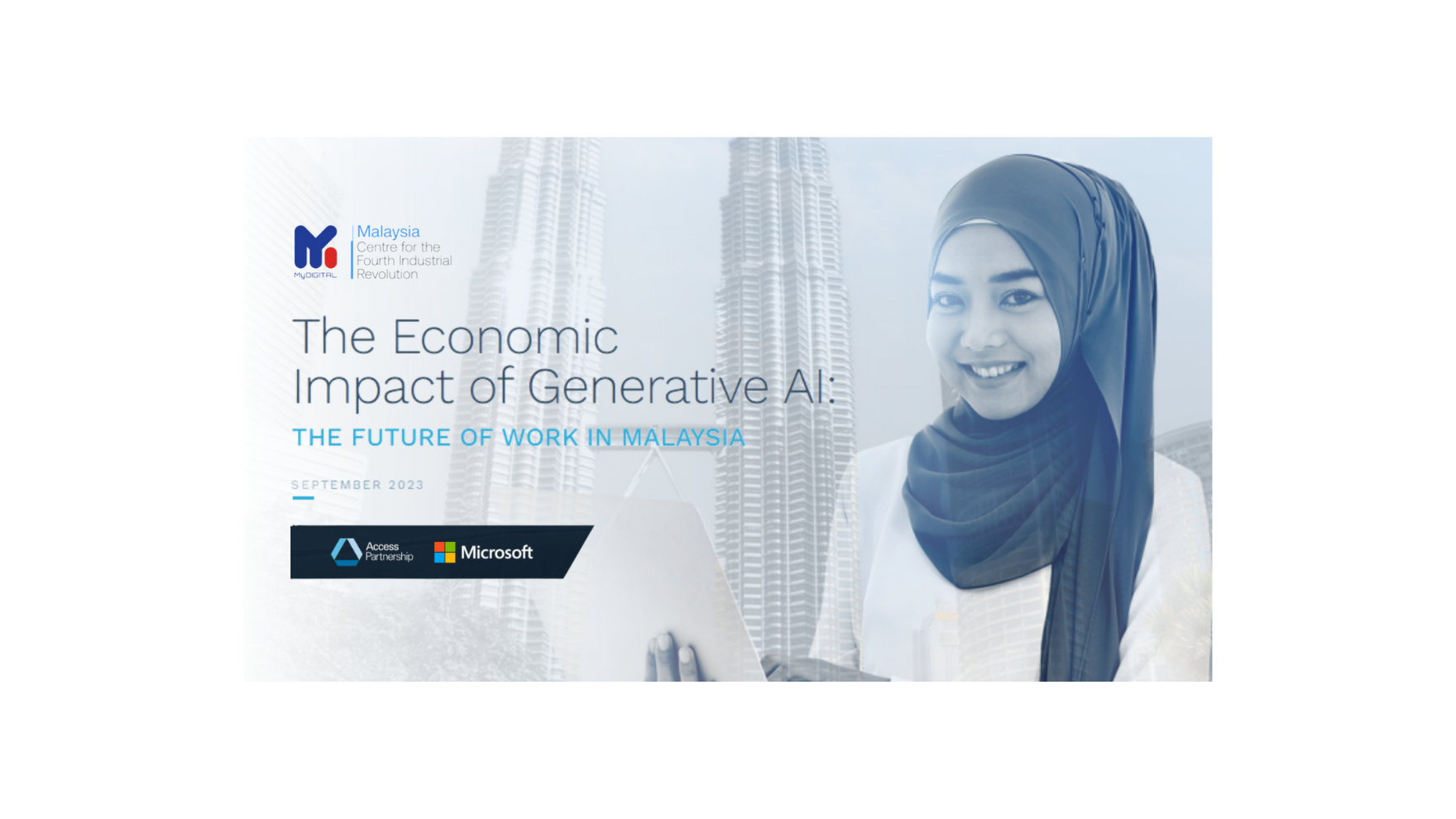Malaysia’s digital economy has experienced rapid growth, with the ICT sector contributing 22.6% to Malaysia’s GDP in 2021, driven by government initiatives, private sector investment, and increasing adoption of digital technologies. The National Fourth Industrial Revolution (4IR) Policy document identifies AI as one of the key technologies that ‘’are foundational to the nation’s 4IR agenda’’ and stresses the need to develop ethical use of AI for transforming the economy. To guide AI deployment and governance, the government also published a National AI Roadmap in 2021, aimed at making Malaysia a nation where AI enhances jobs, drives competitiveness, encourages innovation and entrepreneurship, and improves people’s well-being.
Against this background, technology industry leaders have noted that AI is at an inflection point, with powerful new models like generative AI being introduced, and innovative new applications increasingly being used across society and capturing the imaginations of consumers. Generative AI has opened the door to more possibilities and is expected to play a role in tasks requiring creativity, curiosity, and looking at information differently. Therefore, the potential of generative AI lies in its ability to enable people to achieve greater creativity, effectiveness, and efficiency in their work.
This report seeks to contribute to this discussion by providing early insights and raising awareness of the economic opportunities that generative AI can create, and what it means for local industries and workforce readiness.
This study estimates that using generative AI to transform the way work is currently done in the Malaysian economy can potentially unlock USD113.4 billion of productive capacity, equivalent to a quarter of GDP in 2022. Malaysia has an opportunity to better position its businesses and workers to unlock the potential of generative AI, as well as manage emerging risks. Policymakers will need to ensure that they have a clear national vision for AI, and that it focuses on preparing its workforce and establishing an enabling policy environment for AI adoption, including to answer the question “what is required to achieve the aspirations of a brighter future enabled by generative AI?”
Download “The Economic Impact of Generative AI: The future of work in Malaysia”:
Authors








